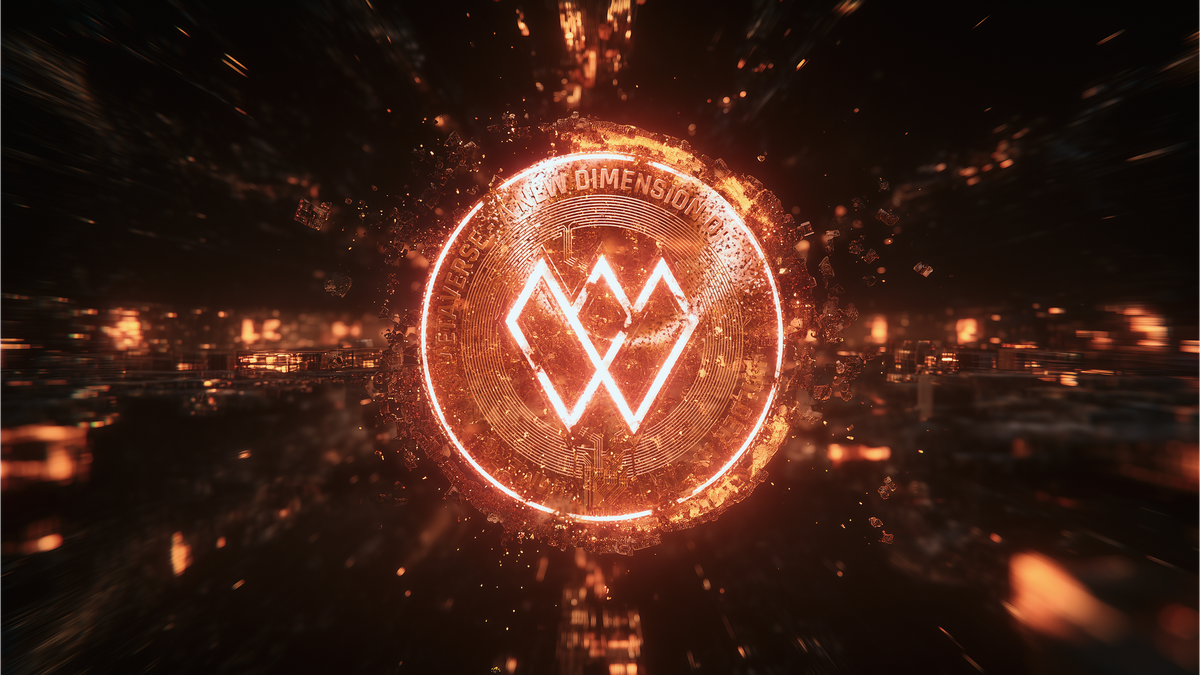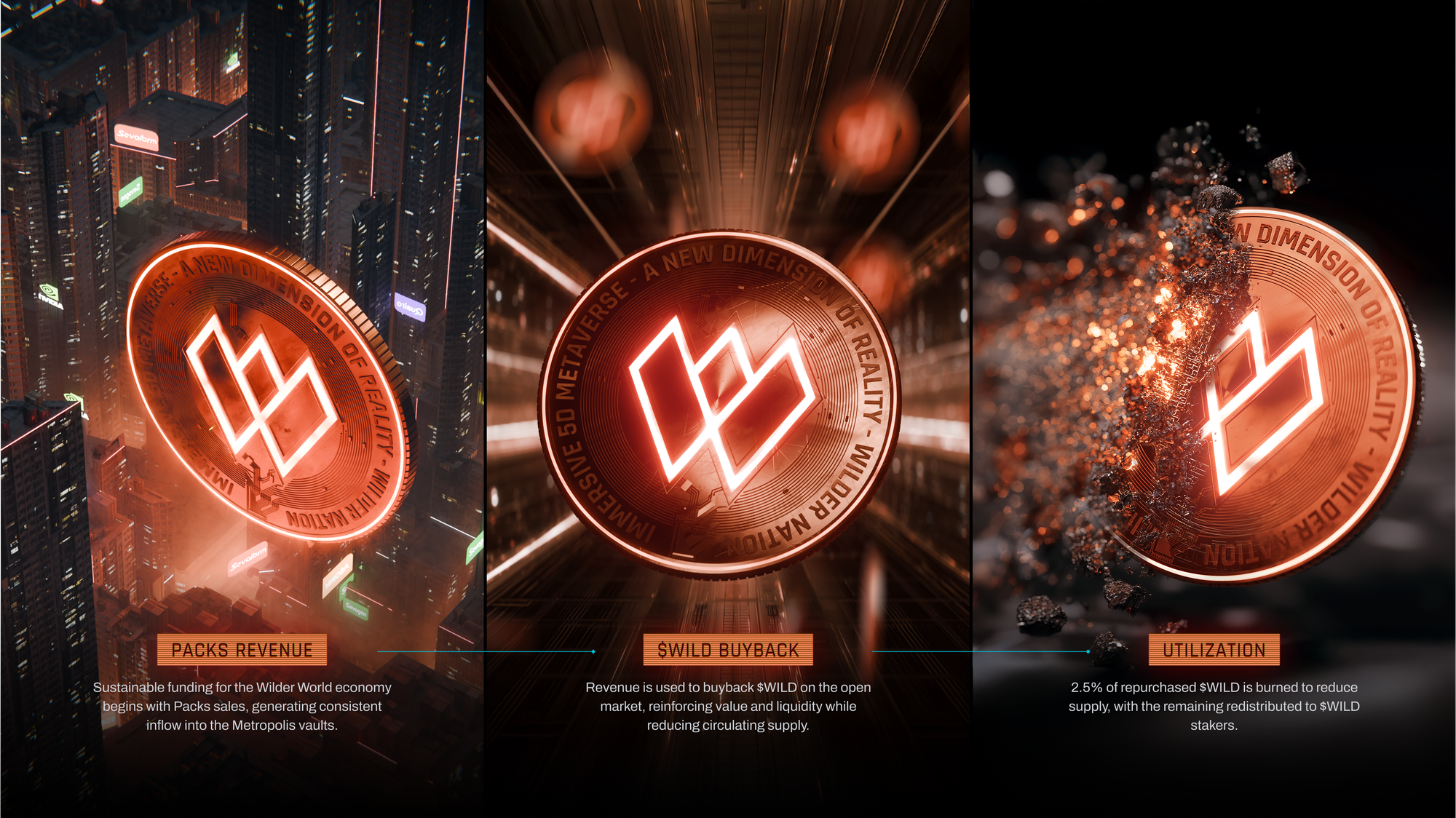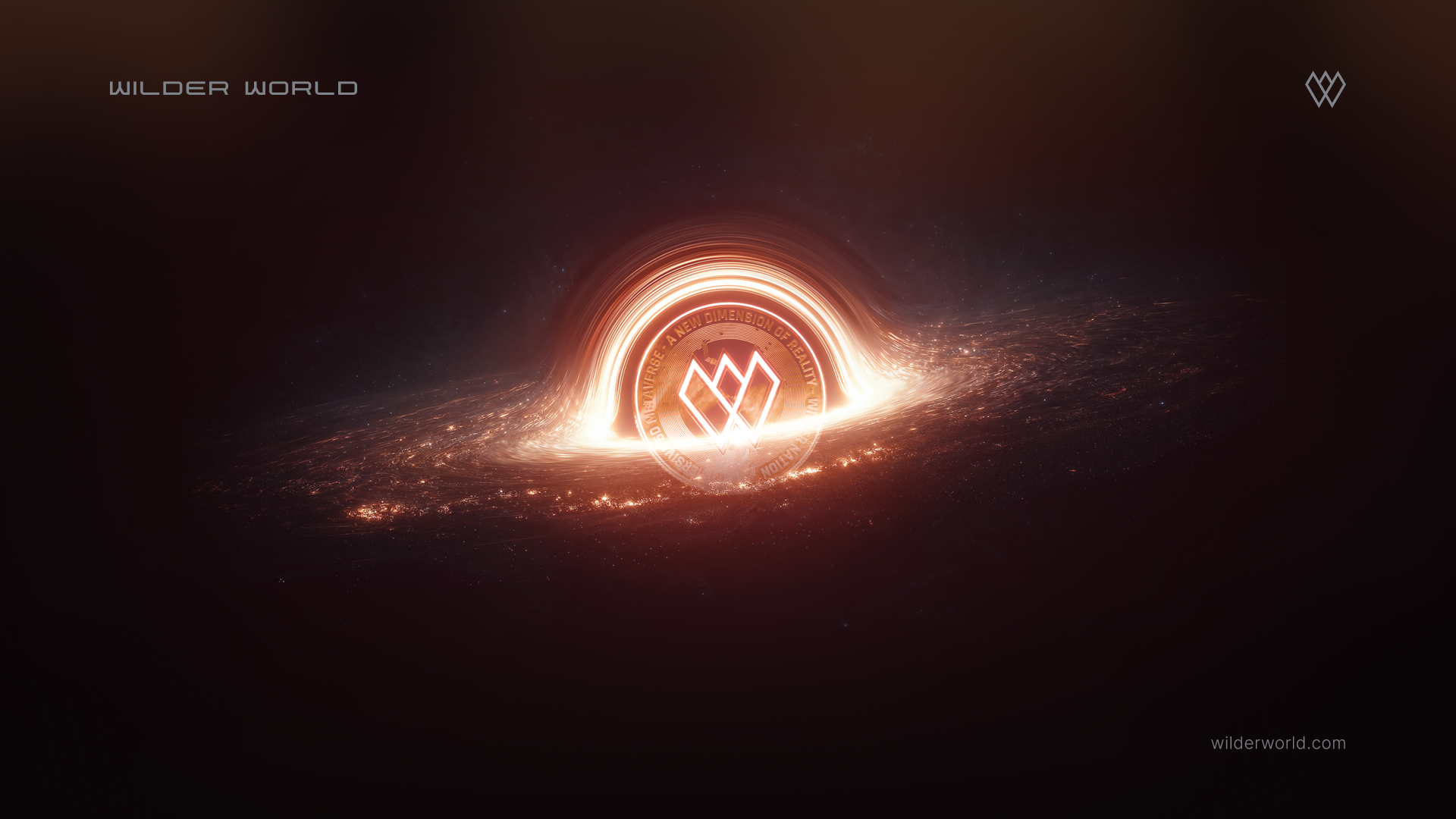Metropolis

Introduction
Wilder World is not just a game or a virtual space, it is the blueprint for a new kind of digital society. One where players are builders, value is earned through action, and the economy lives entirely onchain. At its core is Metropolis, a decentralized economic protocol that transforms gameplay into programmable value, powering a self-sustaining system where every item, identity, and industry is tokenized and controlled by those who participate.
Inspired by the complexity of real-world systems, built for transparency and interoperability, Metropolis enables the entire economy to connect, coordinate, and evolve over time. It links the WILD token to a network of industry DAOs, asset production pipelines, and resource-backed systems, facilitating value exchange without centralized intermediaries.
This is more than a game economy, it’s a living, programmable system designed to evolve, adapt, and be governed by its participants, redefining what it means to own, earn, and build in the virtual age.
Metropolis Mechanics
The WILD token powers the Wilder World economy through Metropolis, a decentralized protocol that functions as an economic flywheel, locking WILD, returning value to committed holders, and fueling long-term sustainability.
Operation TITAN was recently launched to help ignite the launch of Metropolis, to reinforce its foundational mechanics through strategic buybacks. This multi-phase initiative includes OTC purchases from early supporters, DAO-funded onchain buybacks, and treasury-backed accumulation. Each step in this plan reduces circulating supply, aligns ownership with long-term participants, and strengthens the economic integrity of the Wilder ecosystem.
Metropolis is TITAN in a sustainable form, in perpetuity, forever. Every action within Metropolis reinforces the loop, ensuring value flows to those who contribute, and that the economy remains open, player-owned, and deflationary by design.

Tokenized Assets and Tradeable Economies
Every item, character, and resource in Wilder World exists as a tokenized onchain asset. From Land and vehicles to Avatars and weapons, each asset is minted onchain and tied directly to gameplay functionality. Even parts of weapons, cars, and gear exist as their own NFTs, which can be combined to create more complex NFTs. Ownership is real, tradeable, and permanent.
These assets form the foundation of the in-game economy and enable interoperable value across all gameplay modes, player systems, and future expansions. What you own shapes how you play, build, and profit.
The gameplay economy has been carefully crafted to prevent 'pay-to-win' mechanics, enabling competitive players to earn valuable items in game through participation and merit, while minimizing the edge a player has by having unique or rare items. This is a critical balance to make Wilder World both economical, and a real economy, while balancing fun, fair competition, and skill.
Packs and Distribution
New assets enter the Wilder World economy through weekly Pack drops and can be acquired in two ways:
- Purchased with crypto or traditional currency (ETH, USDC, etc.)
- Earned through in-game leaderboard performance
Wilder Packs are more than collectibles, they are core gameplay systems wired directly into progression and the wider economy. Each Pack contains functional in-game items from different industries that are fully tradeable and carry utility across Wilder World’s racing, combat, and open world modes. What you unpack impacts how you play, compete, and customize your experience.
Pack purchases feed directly into the Metropolis economic flywheel, with 100% of revenue used to buy back WILD on the open market, supporting token demand in a sustainable manner. A full ZINE dedicated to Pack mechanics will be released soon, detailing the intricate nature of Packs, item supply and demand, as well as rarity and utility.
Skill-Based Rewards and Staking
Metropolis focuses on rewarding both players and creators. 50% of Packs will be available through a weekly drop auction, and 50% will be available by grinding in-game.
For primary market sales, 100% of revenue is used to buy WILD on the open market, where 2.5% is then permanently burned from the total supply, and the remaining WILD is redistributed to WILD stakers. This system aligns player as well as collector participation with the long-term success of Wilder World.
For secondary market sales, the Wilder World marketplace will charge a 2.5% fee, 100% of which will be burned from the total token supply.
For creator sales (via the recently announced wiami.fun platform), 50% of the revenue generated off trading volume will be returned to the creator, and 50% will be burned.
The combination of market purchases, staking redistribution, as well as different burn mechanisms makes the WILD token deflationary overtime, strengthening the Wilder World economy.
Weekly drops, as well as staking, will happen directly in Wilder World's companion app, ZERO, as well as be possible directly in-game.
Land, Resources, and Crafting
Starting with Bitcoin — the primary innovation behind Bitcoin and blockchains in general, is the ability to sequentially order transactions within a distributed network, in order to produce digital scarcity.
The ERC-721, the most popular NFT standard, rely on similar principles, and enable creators to enforce digital scarcity, within a particular collection. It is not the art of a Crypto Punk that is a technological break through, it is the fact that there can never be more than 10,000 of them. It's digital scarcity.
The one issue that arises within an open economy like any metaverse, web3 game or digital collectible space is that you lose the rules that enforce scarcity within the economy. If there is an unlimited number of items created, or anyone can create a car, with no real underlying cost, value will quickly approach zero.
Metropolis introduces the idea of onchain resources that must be mined from virtual land plots (similar to Bitcoin). Unlike other metaverse land projects, land in Wilder World is backed by a rich network of onchain resources, that are in turn backed by WILD. This design connects the entire Wilder World economy, tying new asset production and scarcity to actual player growth. Every layer of the economy is connected, similar to a supply chain in the real world. This system has taken multiple years to build, and spans every protocol and core part of the game, as well as the infrastructure layer of Wilder World.
Resources are mined from Wilder Land plots, onchain parcels that represent decentralized, sovereign ownership in-world. Each plot is backed by WILD and integrated directly into the game’s production systems, ensuring growth is driven by effort, ownership, and participation, not arbitrary inflation.

Conclusion
Earlier this week we rolled out our new staking protocol to Z Chain, which metropolis sits on. Over the coming weeks and months we will continue to open up more systems and mechanisms for both players and collectors, bringing Metropolis from an initial vision to reality.
Metropolis is more than a protocol, it is the foundation of a new economic paradigm. As Wilder World grows, billions of assets will flow through its systems, forming an open, interoperable world that evolves with its players. This is the future of virtual ownership: decentralized, transparent, and powered by those who participate, stake, and build together.
Wilder World isn’t a simulation. It’s the dawn of a new digital civilization.
Buy WILD and stake your claim in the metaverse economy of tomorrow.
With Blessings,
The Wilders
